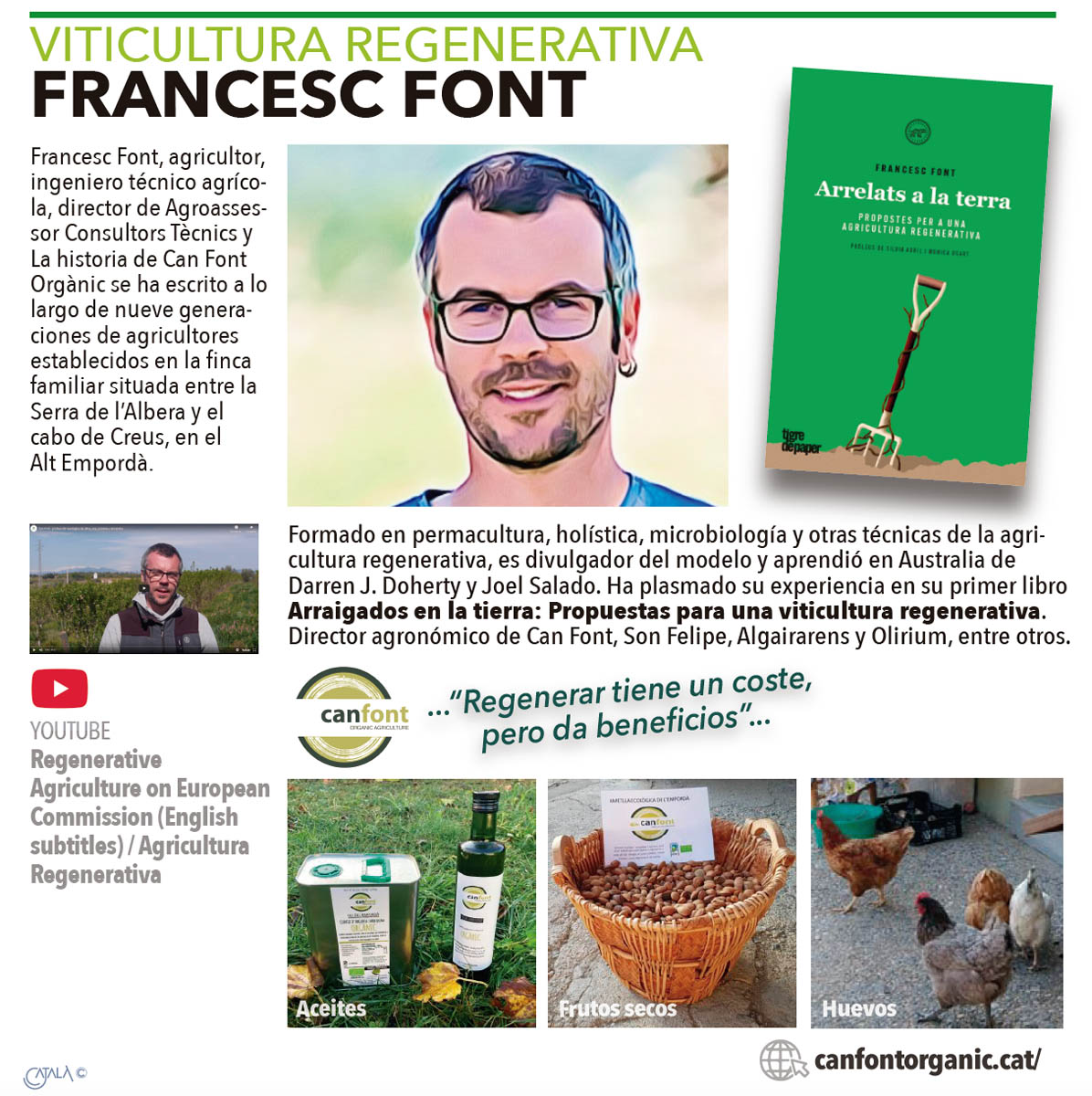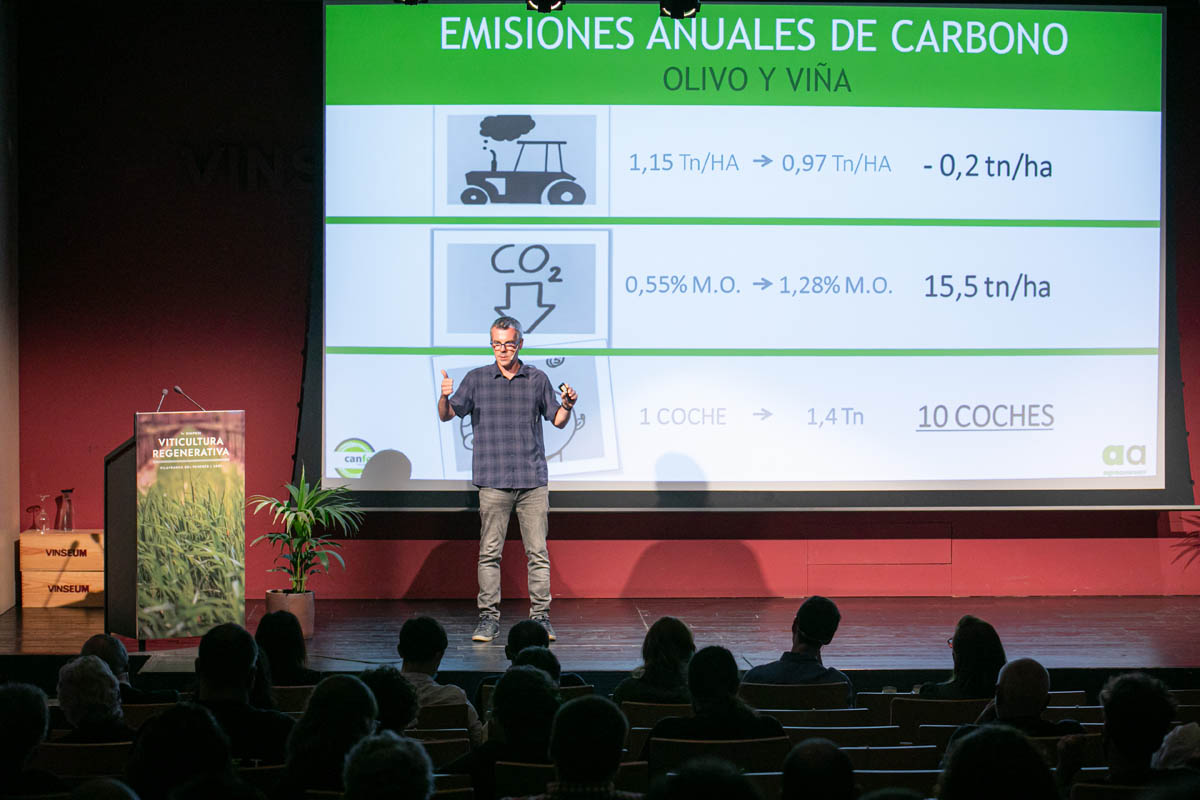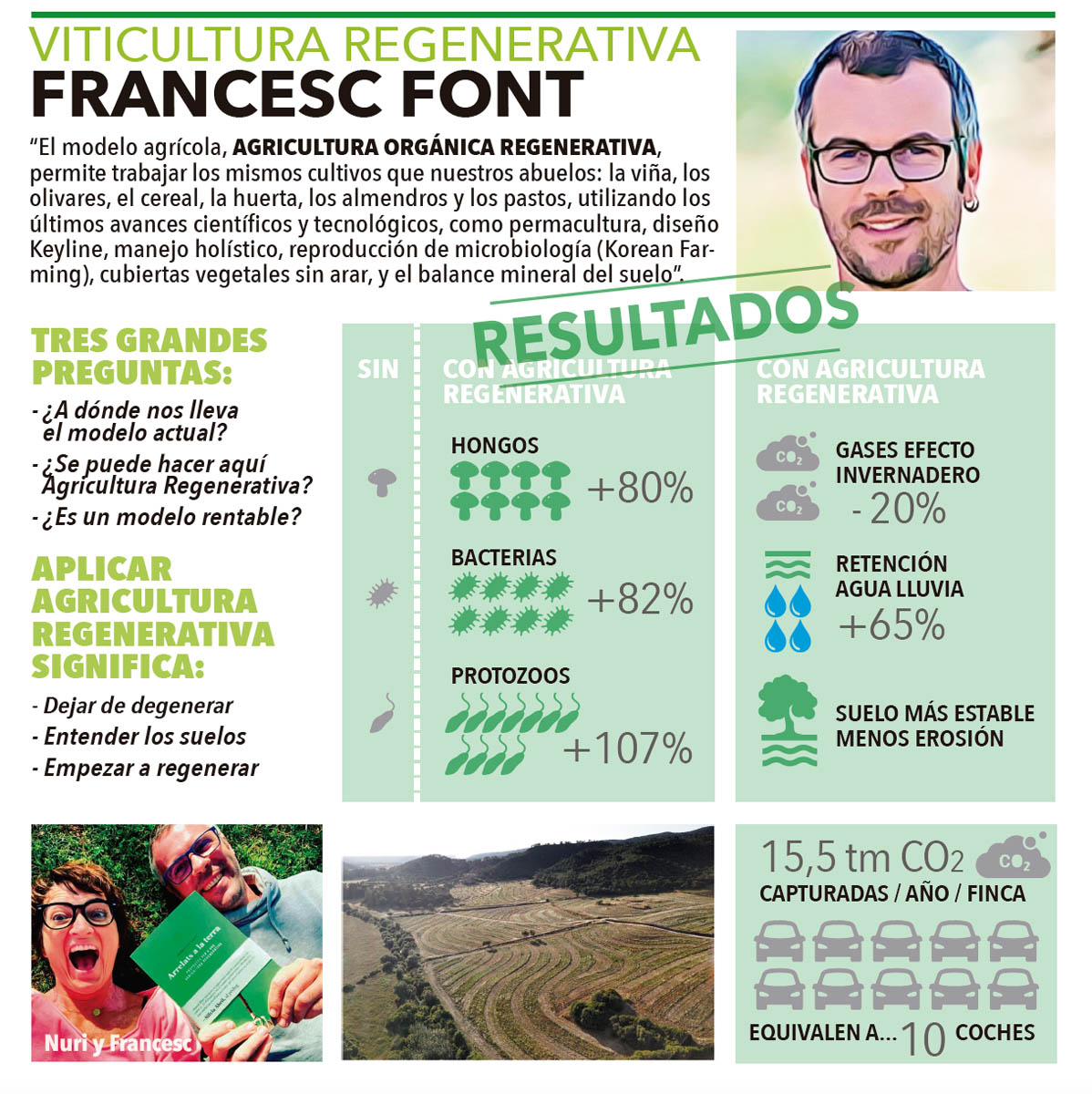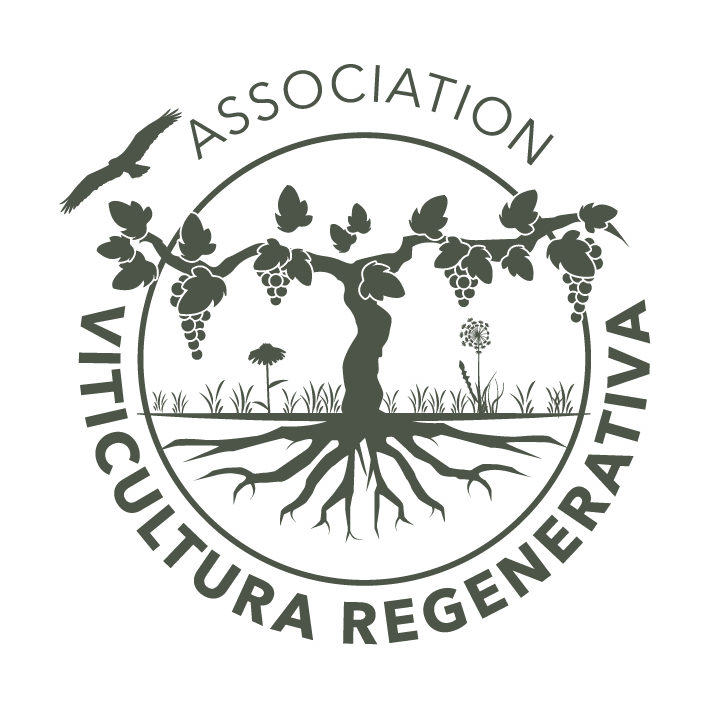Francesc Font: “Regenerative agriculture lets you produce healthier food, earn a better living, and take care of the planet”
Francesc Font, farmer and agricultural engineer, director of Agroassessor Consultors Tècnics, and author of the book Arrelats a la terra: propostes per a una viticultura regenerativa, participated in the 1st Regenerative Viticulture Conference held in Vilafranca del Penedès this past June. Below you'll find a summary of this talk “Regenerating vineyards to protect the planet”.

More than five years ago, Francesc and Nuri, husband-and-wife winegrowers in the Empordà region, began questioning the (conventional) agricultural model they were using in their vineyards and what impact this was having on the climate crisis, the loss of biodiversity, and desertification. They reflected on the fact that every time it rained or the wind blew, the soil was being eroded, and 20 tonnes of earth per hectare were washed or swept out to sea every year. They also reflected on the fact that we lose a centimetre of soil every 5 years, an amount that takes 40 years for nature to restore.
With these thoughts in mind, they got to work researching and compiling data until one day they came across the video How to Green the World's Deserts. This is when they began dreaming about becoming regenerative farmers and what it meant to “stop degrading” and “begin regenerating”. They decided yes, this could be done: store carbon, stop erosion, return life to the soils and the environment (which in turn fosters biodiversity), produce healthy foods without using toxic inputs, and, above all, “understand the soils”. They literally stuck their heads into the earth to see how the minerals interact, how the roots work, to understand soil compaction, microbiology, mineralization, and gather all the information they needed to start implementing regenerative methods.
They planted cover crops and began managing them (flattening, cutting, replanting) as what they really are – protective layers that create an excellent climate for microbial communities and protect against erosion by minimizing the soil that is washed away by rain. These cover crops keep the surface temperature of their vineyards up to 10 degrees lower in summer compared to neighbouring vineyards.
Francesc and Nuri came up with a new motto: “the soil is the most important crop”. To nourish this crop, they turned to compost, sea water, microbiological preparations, and manure. They used Keyline design techniques to encourage the natural flow of water and even restored old military bunkers to harbour bats, which are a valuable ally in natural pest control. Francesc described other examples of the work he has done with vineyards on Menorca, which integrate pigs that graze year round, bees that produce honey, and almond trees as part of the regenerative management of the soil and its cover crops.

His motto “creating through measurement, improving through measurement” has become a reality, with staggering results that prove his soils are far more alive than their conventionally farmed counterparts. The data speaks for itself, revealing far more stable soils, with almost no water or wind-induced erosion: 80% more fungi, 82% more bacteria, 1075% more protozoa, 20% more rainwater holding capacity, and 20% fewer GHG emissions by not tilling the vineyard. And the most impressive number of all: they capture 15.5 MT of CO2 per year, equivalent to the emissions of 10 cars.
He offered a final observation: regenerating vineyards is costly, but it does generate a profit – in the case of Francesc and Nuri, their margin is currently 10% higher. By this point, the answers to the three questions he had asked at the outset – Where is our current model taking us? Can regenerative agriculture be implemented in Spain? Is it financially viable? – were more than clear.

